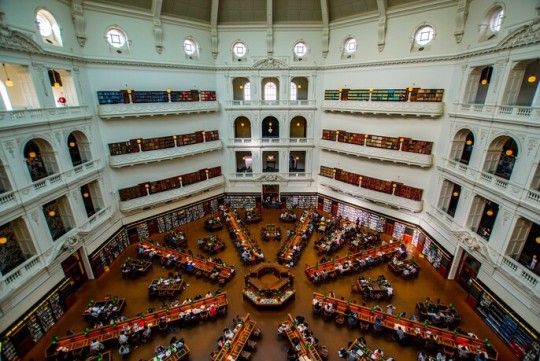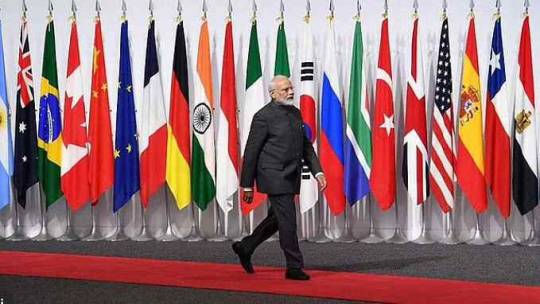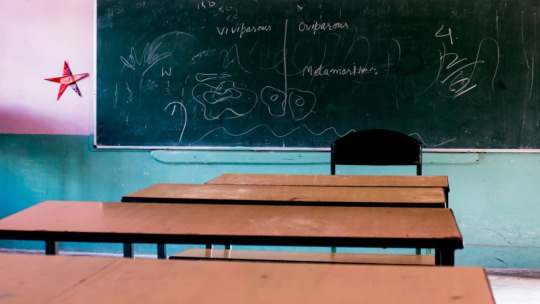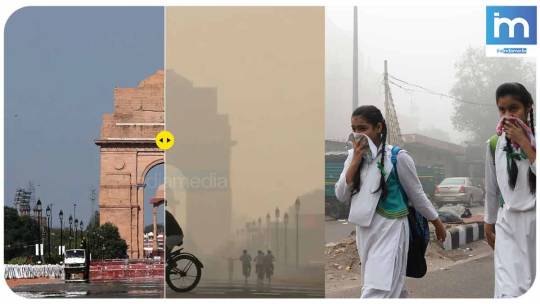#delhi closed lockdown
Explore tagged Tumblr posts
Text
Anonymous asked: Of all the many languages you speak which is your weakest one? Do you use those languages?
It’s privilege to learn any language that isn’t your mother tongue. As Ludwig Wittgenstein correctly observed, “The limits of my language means the limits of my world”. If English is our native tongue we put ourselves at a disadvantage because we expect every other nationality to take the trouble to speak it. There seems no incentive to learn a foreign language. We become lazy not just in language but also in other ways including our cultural enrichment, our imagination, and a misplaced sense of our self-importance in the world.

Of the European languages I know, I probably think German would be my weakest. When I was in school in Switzerland you’re brought up in three languages: French, Italian, and German (even if the Swiss speak Swiss German). When I say weakest I mean I can converse fluently, but I don’t have time to read German literature in the same immersive way I would say with French literature or take any special interest in German affairs.
I would say I’m fairly fluent in French now but still prone to silly mistakes. I’ve been told that I can speak without an accent and that is heart warming to know, because that was always the goal once I moved here to France. I don’t really use French in my work as it’s a multi-national entity and so English is the default language of corporate world, but I’m speaking French pretty much the rest of the time outside of work.
I was extremely fortunate to be born into a multi-lingual family where Norwegian and English were spoken from birth. All my siblings were being versed in Latin (not Greek which came years later after doing Classics at university) by the time I was 8 or 9 years old because my father was a classicist and he felt Latin was the building blocks to mastering other languages.
All this occurring whilst we moved lived and moved around a lot in the world such as China, Japan, India, and the Middle East. When I was initially sent to one of the first of my English girls boarding schools I was horrified that most of the girls only spoke English. I thought I was the stupid one for only knowing 6. Boarding school, if nothing else, gave me a great privilege to hone in on the languages I did know and start to learn others.
My parents didn’t take the easy way out and put us children in international schools like all the other expat children. That would have been too easy given how tight knit the British expatriate community was out there. Instead we were left to sink or swim in local schools in places like Tokyo and Kyoto in Japan or Shanghai in China or in Delhi, India. It was a struggle but you soon find your feet and you stumble towards some basic level of fluency.
I’m fortunate that before Covid my corporate work took me often to the Far East and it was a great opportunity to hone what I already knew. The result is I can converse and take business meetings in Chinese and Japanese (though English gets thrown into the mix too).

I would say Chinese is more of a struggle for me these days because I’ve not been back since before the Covid lockdown in 2020. Chinese is one of those languages that can easily melt away if you don’t get the chance to converse in it on a regular basis. Japanese less so, probably because the culture had more profound impact on me than Chinese culture.
Hindi is less of an issue because I have close Indian friends and also I watch Bollywood movies as well as converse with Indian immigrants here in Paris who have local stores. Urdu I learned through the backdoor because Urdu has a spoken affinity with Hindi (if you know Hindi then you know spoken Urdu, more or less, especially in Northern India and cities like Delhi where Urdu was born in the burnt ashes of Mughal India). Reading is another matter because they each use different scripts - Sanskrit for Hindi and Arabic and Persian script for Urdu.
Strangely enough when I was doing my tour in Afghanistan years ago with the British army, I would speak Urdu with local Afghans who served as official translators or were selling goods on the base. These Afghans knew Urdu because an entire generation of Afghan boys and girls grew up in refugee camps on the Pakistani border during the different phases of the Afghan war. I have very fond memories of their friendship and hospitality, but less so of the war itself.
With Arabic, it had lapsed woefully until I did a posting in Dubai in the past year (as catalogued in my blog) and I found myself suddenly remembering a lot and asking Arab friends. Soon I was able to hold my own amongst my colleagues and corporate clients. In these cultures it’s really hard to stay focused because so many of them speak very good English. So it’s hard to get them to stick with their own language because you want to learn from them - but they want to show off their English proficiency - and so you have to be polite but persistent to stick with Arabic.
If you’re learning a new language then I hope you stick with it. There’s almost nothing more rewarding in your life than the disocovery a rich culture through language. The key is to find a way to make it fun rather than a trip to the dentist chair for a root canal operation.

Thanks for your question.
86 notes
·
View notes
Text
Expectant Women Based on Easily Available Ingredients During Lockdown

Nutrition is a key factor for a healthy pregnancy. However, given the lockdown and the difficulty of food supply or food supply chains being adversely affected, many may not have access to all kinds of food items. Therefore, to ensure proper nutrition, we have listed down a pregnancy diet plan based on the easily available ingredients during the lockdown.
Here is a list of different breakfast, lunch, dinner, and mid-day snack options. These options will not only provide you good nutrition for a healthy pregnancy but will also help you boost your immune system amidst this corona virus outbreak.
Breakfast: • A glass of milk with one of the following: poha, upma, dosa, steamed idli, oats, boiled eggs, etc
Lunch and Dinner Vegetarian: • Rice or Roti with dal, dahi and vegetables, or simple vegetable khichdi with dahi • Stuffed vegetable paratha (eg. Aloo paratha, methi paratha, cabbage paratha, palak paratha, etc) with dahi
Non-Vegetarian: • Rice or roti with egg curry, chicken curry, fish curry (like prawns, Bombay ducks, or whatever is available and safe to consume) and vegetables • Steamed or baked fish with millets or quinoa salad. • Chicken soup with salad and whole wheat bread
Mid-Day snacks • Oat bars • A bowl of sprouts • A bowl of fresh fruits or a handful of dry fruits, nuts and seeds. • Vegetable fingers with nut butters popcorn, fox nuts, khakhara, dhokla
Stay Hydrated
It’s important to stay hydrated during pregnancy, hence make sure you drink lots of water. Adequate intake of water will decrease constipation, decrease the risk of urinary tract infection, reduce swelling due to oedema, soften your skin, and keep you cooler.
Foods and Beverages to Avoid During Pregnancy Pay close attention to what you eat, and avoid the following food items and beverages in your diet during pregnancy:
• Unwashed fruits and vegetables • Unpasteurized milk • Shellfish • Undercooked or raw fish like sushi and meat or eggs • Caffeine • Alcohol • Processed Junk Foods
Pregnancy is a beautiful phase of life, so all the expecting women stay at home, be safe, and enjoy the upcoming motherhood. If you need help or have questions with your nutrition plan — feel free to consult Kanupriya Khanna. A female fertility nutritionist in Delhi — Kanupriya will not only help you with a good diet plan, but will also help you stay calm and healthy during the lockdown.
0 notes
Text
Gateway to the Subcontinent: Parcel Services Connecting UK and India
In an increasingly interconnected world, the significance of efficient parcel services cannot be overstated.
Nowhere is this more evident than in the link between the United Kingdom and India, where these services serve as vital gateways connecting two nations with deep historical, cultural, and economic ties.
From sending gifts to loved ones to facilitating international trade, parcel services play a pivotal role in bridging the gap between the UK and the Indian subcontinent.
Bridging Distances, Connecting Hearts
The relationship between the UK and India dates back centuries, marked by trade, colonization, and cultural exchange.
Today, this bond continues to thrive, with millions of people across both countries maintaining close ties with friends, family, and business partners.
Parcel services act as lifelines, enabling individuals to send and receive goods, documents, and sentiments across thousands of miles.
Whether it's a care package from London to New Delhi or essential documents from Manchester to Mumbai, these services ensure that distances do not hinder connections.
Efficient Logistics, Seamless Transactions
One of the key factors contributing to the success of parcel services between UK and India is the efficient logistics network established by leading courier companies.
These networks encompass air, sea, and land transportation, enabling swift and reliable deliveries to destinations across the Indian subcontinent.
With advanced tracking capabilities and streamlined customs clearance processes, parcels move seamlessly from sender to recipient, ensuring timely arrivals and peace of mind for both parties involved.
Catalyst for E-Commerce Growth
In recent years, the growth of e-commerce has further fuelled the demand for parcel service from UK to India. As more consumers turn to online shopping for convenience and variety, the need for reliable shipping solutions has become paramount.
Parcel services play a crucial role in facilitating this growth, enabling e-commerce businesses to reach customers across borders.
From fashion and electronics to gourmet foods and handicrafts, these services make it possible for British retailers to tap into the vast Indian market and vice versa.
Navigating Challenges, Overcoming Barriers
Despite the advancements in parcel services, challenges persist, particularly in the face of global events such as the COVID-19 pandemic. Travel restrictions, lockdowns, and disruptions to transportation networks have posed significant obstacles to international shipping.
However, parcel services have proven to be resilient, adapting to changing circumstances and ensuring the continuity of supply chains.
From delivering essential medical supplies to supporting small businesses during uncertain times, these services have emerged as pillars of support for communities on both sides of the globe.
Looking Ahead: A Future of Connectivity
As we look to the future, the role of parcel services in connecting the UK and India will only continue to grow. With ongoing advancements in technology, logistics, and sustainability, these services are poised to become even more efficient and environmentally friendly.
Moreover, as trade agreements evolve and economies integrate further, the demand for seamless cross-border shipping will soar. Parcel services will remain at the forefront, serving as the gateway to the subcontinent and fostering greater connectivity between nations.
0 notes
Text
Ravi Tiwari: Youth leader of the BJP Delhi
Ravi Tiwari is a dynamic and emerging youth leader of the BJP in Delhi. Ravi Tiwari made his political presence known in 2016 when he took on the responsibility of minister at Young Morcha, Nihal Vihar Mandal, New Delhi.
Read in Hindi
In Delhi, Ravi Tiwari is eager to lead the Bharatiya Janata Party (BJP) forward and enhance public support. During his tenure as the leader of the BJP in Delhi, Ravi Tiwari has demonstrated exceptional leadership skills and deep dedication to the well-being of his constituents. Serving as the head of the outer BJP Delhi IT Cell, he has contributed significantly.
The primary objectives of Ravi Tiwari, leader of BJP Delhi, in entering politics include promoting social development, advancing education, boosting economic prosperity, and ensuring better healthcare facilities for the general public. Ravi Tiwari's strategic vision and relentless efforts have played a crucial role in enhancing the socio-economic structure of the region. Ravi Tiwari is perceived as an accessible leader who genuinely cares about the welfare of the people.
What Is The Academic Background Of Ravi Tiwari?
The BJP Delhi leader, Ravi Tiwari, comes from a mature and strong academic background. He did his schooling at Kendriya Vidyalaya, Pashchim Vihar, New Delhi, with the first division. Subsequently, he pursued education in mechanical engineering at TMU University. He completed his MBA from TMU University as well. Currently, Ravi Tiwari, the leader of the BJP in Delhi, is pursuing a Ph.D.
Ravi Tiwari’s Contribution To Public Welfare?
Ravi Tiwari has been doing a lot of things for public welfare with his own money. He did not receive any financial help from the government. He is always there to solve local issues and improve public welfare. He has done so much work for the public without holding any official position. All these things cannot be described in one article. But we are trying to highlight some highlights of his commendable initiatives towards public welfare.
Food Arrangements During COVID For More Than 200 People
We saw a huge mess in society during COVID. The markets were closed because of the lockdown. In such conditions, people were facing so many problems to fulfil their daily needs. People who came to Delhi for livelihood, leaving their hometown, were facing so many difficulties in search of bread and butter. They could not get the work done and earn money due to the lockdown. In such a difficult scenario, Ravi Tiwari decided to help these people. He arranged free meals for more than 200 needy and poor people per day. He took on the responsibility of feeding their family. He performed all these things without taking even a single penny from the government. He did all this work at his own expense, without any government assistance.
Ravi Tiwari Conducted The Namo Awareness Campaign
Ravi Tiwari conducted a Namo App awareness campaign in Nihal Vihar, Delhi, for more than 10 days at different places. He tried to spread awareness about the Namo app. He encouraged people to install the Namo app. Ravi Tiwari informed people about the Modi government’s achievements and projects through this awareness camp. He tried to be aware of usage and benefits of the Namo App. In Delhi, Ravi Tiwari played a crucial role in empowering the BJP (Bhartiya Janata Paty) at ground level.
Free Insecticide Spraying For Mosquitoes
In the Nihal Vihar ward of Delhi, Ravi Tiwari, the leader of BJP Delhi, took the initiative to distribute free insecticides for mosquitoes using his funds and without any government assistance. There was a lot of pollution in that area. The government was not taking any interest in cleaning that area. The Delhi government failed to launch any cleanliness scheme. In such conditions, people had to live with life-threatening diseases due to pollution every day.
The current Kejriwal government in Delhi has failed in its cleanliness campaign. So, Ravi Tiwari again came out to help people and launched this insecticide spraying for mosquitoes using his funds. He tried to solve the burning problem of people so they could get away from this life-threatening disease due to pollution.
Free Street Lights
The people of Delhi were fed up with scams and corruption by the Congress party. So, this time they opted for Arvind Kejriwal as Chief Minister with huge hope. But he too could not deliver on the expectations of the public. Every evening, it is very dark and dense in Nihal Vihar ward, Delhi. Because there are no proper street lights. People find it very difficult to walk on the roads. Street food vendors and pedestrians also suffer a lot from walking on the road. It is the government's responsibility to install streetlights on the road. Ravi Tiwari once again took responsibility and provided street lights using his funds.
Through this article, we have discussed various aspects of the life of Ravi Tiwari, the leader of the BJP in Delhi. We went through his education, political debut, and the extensive work he has undertaken for the public. The continuous growth in his stature and responsibilities within the Bhartiya Janata Party (BJP) reflects Ravi Tiwari’s resilient, hardworking, and grounded leadership. We hope that you have found this article enjoyable and informative.
0 notes
Text
Visiting delegation says UK universities are working to address housing crunch faced by foreign students
Accommodation options in UK universities have not risen in line with the increase in the number of students flocking to the country for education.

UK universities are working towards solving the problem of accommodation, Steve Smith, former vice-chancellor of the University of Exeter and one of the leaders of the UK delegation visiting India to explore educational partnerships, told The Indian Express in New Delhi on Monday.
“There is pressure of accommodation. There is a lot of work going on in the universities to increase the stock of accommodation, and they’re going in partnerships with private providers to increase accommodation. There are some issues, but the vast majority of the international students have their accommodation sorted out,” he said.
Accommodation options in UK universities have not risen in line with the increase in the number of students flocking to the country for education. Many Indian students have, as a result, had to put up in cities close to their universities, as per reports. This option tends to be unaffordable for many too, given the rising inflation and room rents. Construction challenges during lockdown have been cited as one of the reasons behind the accommodation shortage in the universities. Experts have suggested students contact other Indian aspirants before moving in, to avoid facing any trouble after landing in the UK.
In its week-long visit to India, the UK delegation is expected to visit three more cities — Mumbai, Chennai and Ahmedabad — to explore the possibilities of a joint degree programme, industry-academia partnership and other modes of collaboration between Indian and UK higher educational institutions. These discussions will be held as a part of the Going Global Programme of the British Council.
“The delegation from the UK is the largest to have visited India for these purposes,” Smith said. The participating bodies from India include the University Grants Commission, the Department of Science and Technology, the Association of Indian Universities, the Department of Biotechnology, the National Assessment and Accreditation Council, and several public and private higher educational institutions.
Asked about the aims of the visit and the scope of the delegation, Smith said the delegation focused on “developing partnerships with Indian educational institutions to offer high-quality degrees in India itself”. He did not say anything about UK universities setting up campuses in India.
“The focus of this delegation is on developing partnerships. Whereas some delegations come to recruit students, this isn’t. This is about developing partnerships with organisations in India so that we can think about offering high-quality degrees here, with Indian partners responsive to the needs and skills gaps of students here, without necessarily the expense of travelling to the UK,” he said.
Rittika Chanda Parruck, director of education (India) at the British Council, told The Indian Express that sustainability has emerged as one of the top areas of interest where the universities seek to join hands. “The other areas include computer science and AI,” she said.
The delegation will also visit several institutions across the country, including IIT Delhi, IIT Bombay, TISS, Anna University, Ashoka University and Gujarat BioTech University — besides engaging with the stakeholders from other public and private universities via discussions and roundtable conferences.
“You can expect frequent announcements from universities throughout the next year,” Smith said.
0 notes
Text
G-20 Summit: Delhi will be closed from 8 to 10 Sep. Lets know what will open and close.
In Delhi due to the G-20 session, the entire Delhi will be deserted from 8 to 10 September. Delhi CM Kejriwal has ordered the closure of schools, offices, and local shops. The country’s capital Delhi is going to be under lockdown soon due to the G-20 Summit is going to be held in Delhi soon, due to which the entire Delhi will remain closed till 8-10 September. During this time schools colleges,…

View On WordPress
0 notes
Text

3 दिन दिल्ली बंद! सड़कों पर होगा ‘लॉकडाउन’ जैसे नियम, कहीं भी जाने के लिए समय से पहले निकलें…
#G20India2023 #G20 #G20Summit #G20India #DelhiMetro #DelhiPolice #Delhi #delhiAirPort #indiacorenews #ankshree https://indiacorenews.in/delhi-closed-for-3-days-there-will-be-rules-like-lockdown-on-the-roads-leave-before-time-to-go-anywhere/
#g20#g20summit#indiacorenews#ankshree#news#google news#update#breaking news#icnewsnetwork#onlinenews#world news#onlinenewsportal
1 note
·
View note
Text
3 Things You Need To Know When Coming Out Of Lockdown | Gurudev Sri Sri Ravi Shankar" on YouTube
youtube
Take a Break and Meditate
Find a comfortable position and close your eyes.
Take a deep breath in, filling your lungs with air.
Exhale slowly, letting go of any tension or stress.
Bring your attention to the sensations in your body. Notice any areas of tightness or relaxation.
Shift your focus to your breath. Observe the natural rhythm of your inhales and exhales.
As thoughts arise, acknowledge them without judgment and gently guide your attention back to your breath.
Allow yourself to fully immerse in the present moment, letting go of worries about the past or future.
Take a few more deep breaths, cultivating a sense of calm and tranquility.
When you're ready, slowly open your eyes and carry the peace you've cultivated into the rest of your day.
This quick meditation can help you find a moment of peace and presence amidst the busyness of life. Feel free to adjust the duration or steps according to your preference and the time you have available.
Rejuvenate yourself with Ayurveda and Yoga Campaign - Ayurveda , Doctor , Treatment , Nadi Pariksha , Medicine , Pure Herbs ,Sudarshan Kriya , Yoga , Meditation in
Mumbai, Delhi , Bangalore , Hyderabad , Ahmedabad , Chennai , Kolkata , Surat , Pune , Jaipur , Lucknow Kanpur , Nagpur , Indore , Thane , Maharashtra,India , United States ,
Netherlands , France , Ukraine , Germany , Indonesia , Bulgaria , United Kingdom , Ireland , Russia , Canada , Singapore , China , Poland , Japan , South Korea , Brazil , Egypt , Portugal , Spain , Azerbaijan , Australia .
#Youtube#Rejuvenate yourself with Ayurveda and Yoga Campaign#Ayurveda#Doctor#Treatment#Nadi Pariksha#Medicine#Pure Herbs#Sudarshan Kriya
0 notes
Text
WHAT IS THE GOVERNMENT SCHOOL FEES IN INDIA

Many parents who were unable to pay their bills as a result of Covid-19 enrolled their children in public schools rather than private institutions. The fundamental reason for this is because private schools charge exorbitant prices. Many parents believe that school costs should not be thus high because classes are held online during the pandemic.
WHY ARE STUDENTS TRANSFERRING FROM PRIVATE TO PUBLIC SCHOOLS?
There has been an impact on children's education as a result of most schools being closed in lockdown 2020. Because schools across India were required to transition to online education, parents were required to purchase a laptop or a smartphone with unlimited bandwidth in addition to paying tuition fees to the school.
Another reason, in addition to the health repercussions of Covid-19, is that the epidemic resulted in millions of job losses and economic troubles. Due to a scarcity of jobs, migrant workers were compelled to return to their home countries, and thousands of employees in even large corporations lost their jobs.
As per research conducted by schools in Mumbai ,States where youngsters have been reported to be transferring to government schools. According to the Gujarat state education department, 2.82 lakh pupils transferred from private to government schools in the academic year 2021-22. Similarly, 1.58 lakh children in Delhi switched from private to public institutions.
Similarly, a Telangana official from the state's senior education department said that 1.25 lakh pupils from private schools have transferred to state government schools for the 2021-22 academic year, a 40 percent increase over the previous academic year that ended in 2021.
In Haryana, two lakh pupils were transferred from private schools to government schools. According to Madhya Pradesh's state education department, 1,29,126 pupils relocated between April and September of 2021.
During the epidemic, 1,85,480 pupils in Punjab switched from private to public schools. During Covid-19, enrolment in government schools in Uttar Pradesh increased by almost 5% at the elementary and higher primary levels.
WHAT ARE THE OPINIONS OF PARENTS AND SCHOOLS?
Another survey done by schools in Pune shows that Meena, the mother of a Class 3 student, recently transferred her son to a government school in Delhi because she couldn't pay the fees at his previous private school. "My son is not benefiting from online education. My spouse and I are not getting paid adequately because of the pandemic.
As a result, we chose a government school," Meena explains. Her son is also pleased with the behaviour of the teachers at the public school. He claimed that private school professors did not pay attention to the students.
Teachers in government schools, on the other hand, are responsible for the students. A Class 12 kid from Jaipur who had previously attended a private school was forced to transfer to a government institution after his parents lost their employment.
The admissions department of a Delhi school, on the other hand, claimed, "We have granted some discounts on outstanding school costs." It did not, however, assist parents, who now solely come for their children's TCs."
Covid-19 has grabbed the jobs of many parents, according to Anil Kaushik, head of the Progressive Private School's Association in Delhi, and this is why parents are sending their children to government institutions. Furthermore, with scientists predicting the possibility of a third wave, parents are wary about putting their children's health at risk.
THERE ARE OTHER CAUSES FOR THE CHANGE
Many parents believe that their children would receive a good education and access to certain amenities in government schools, which is another reason they are making the switch.
For example, the governments of Haryana and Rajasthan announced plans to provide free tablets and computers, bridging the digital divide that existed in India during the pandemic.
The government of Andhra Pradesh has created a flagship scheme named 'Jagnanna Ammavodi,' under which Rs.15000 is granted annually to the mothers of children in government schools in Classes 1 to 12.
Another important element to note is that government schools are strengthening their facilities in comparison to prior years, and teachers are enthusiastic about teaching the pupils.
STATE GOVERNMENTS FACE A DIFFICULT TASK
The difficulty now facing state governments is how to deal with the growing number of pupils in government schools while maintaining facilities and teaching standards to demonstrate to parents that sending their children to government schools was the right decision.
Students who have relocated as well as teachers from government schools will encounter additional hurdles in adjusting to their new surroundings.
Private schools, on the other hand, believe that this will have a negative influence on their budget and that their teachers may lose their employment as a result.
They also believe that such a large number of pupils across India are making this shift for a temporary reason: government school education standards aren't thought to be as high as those in private schools. As a result, government schools must now demonstrate their value by improving their teaching standards and facilities.
0 notes
Photo

Delhi Lockdown 4: Salons to shopping malls, here is what will remain closed Image Source : FILE PHOTO, PTI Delhi CM Arvind Kejriwal Metro trains, schools, colleges, shopping malls, and swimming pools will remain closed during the phase 4 of coronavirus lockdown in Delhi, Chief Minister Arvind Kejriwal announced today. DELHI LOCKDOWN 4: WHAT'S CLOSED/NOT ALLOWED Metro Schools Colleges Shopping malls Swimming pools Religious gatherings Spa Saloon Latest India NewsFight against Coronavirus: Full coverage .
#Closed#coronavirus lockdown#Delhi#delhi closed lockdown#Delhi during Lockdown 4.0#delhi latest news#Delhi Lockdown 4.0 guidelines#delhi what is allowed#healthcare workers#India lockdown#lockdown#lockdown 4#Lockdown 4.0#lockdown 4.0 guidelines#Lockdown 4.0 Guidelines Rules#lockdown 4.0 rules#lockdown in india#lockdown rules#lockdown rules in india#lockdown-4 guidelines#malls#Remain#restaurants and other hospitality services#salons#shopping#whats closed delhi lockdown
0 notes
Text
Why is Delhi Closed? What’s the reason for Delhi Air Pollution?
Why is Delhi Closed? What’s the reason for Delhi Air Pollution?
We are all aware of the fact that Delhi has been shut for this week due to its high air pollution content in the city. Delhi was previously also known for its highest level of air pollution in the country. Because of the covid lockdown last year, it helped not only India but many countries in the world to recover from the natural disasters or I would say it gave nature time for healing. And now…

View On WordPress
#air pollution in delhi case study#air quality index delhi 2021#Delhi Air Pollution#delhi air pollution lockdown#delhi air pollution news#delhi pollution#delhi pollution lockdown#The india media#theindiamedia#Why is Delhi Closed
0 notes
Text
Total lockdown extended in Delhi till May 17, metro services closed - What's open, what's shut
Total lockdown extended in Delhi till May 17, metro services closed – What's open, what's shut
#Total #lockdown #extended #Delhi #metro #services #closed #What039s #open #what039s #shut Amid the rising coronavirus COVID-19 cases in Delhi, Chief MInister Arvind Kejriwal on Sunday (May 9) decided to extend lockdown in the national capital till 5 AM, May 17 (Monday). The chief minister also announced that Delhi Metro services will remain suspended during this period. CM Kejriwal said that…

View On WordPress
0 notes
Text
Delhi Under Six day lockdown starting tonight Lets see what open and what shut
Delhi Under Six day lockdown starting tonight Lets see what open and what shut
Delhi under Six-day lockdown starting tonight The Capital would be placed under a six-day total lockdown starting Monday night till early next Monday morning, Chief Minister Arvind Kejriwal announced here. The announcement came after Lieutenant Governor (L-G) Anil Baijal and Mr. Kejriwal met to discuss the COVID-19 situation in the city where both agreed that the city’s health system had reached…

View On WordPress
#alltodaytech#att#attjobsadda#attnews#carona virus#covid 19#covid 19 new strains#covid pandamic situation#covid second wave in India#covid strike inida in second wave#delhi lock down#delhi six day lockdown#Delhi Under Sixday lockdown starting tonight Lets see what open and close#India under covid second wave strike#six day curfew in delhi
0 notes
Text
Coronavirus in India: पर्यटको के लिए ऐतिहासिक इमारते और म्यूजियमस किये गए बंद ?
Coronavirus in India: पर्यटको के लिए ऐतिहासिक इमारते और म्यूजियमस किये गए बंद ?
केंद्र सरकार ने कोरोना के बढ़ाते मामले को देखते हुए लिया बहुत बड़ा फैसला। अपने अधीन आने वाले सभी ऐतिहासिक इमारते या धरोहरों तथा म्यूजियम आज से अगले आदेश तक के लिए बंद (closed monument कर दिए गए। यानि आज गुरुवार से किसी पर्यटक चाहे वो स्थानीय हो या कोई और इन स्थानों पर नहीं घूम सकते। देश ने कोरोना के मरीजों की संख्या दिन प्रति दिन बढ़ता ही जा रहा है। पिछले एक सप्ताह में ही दोगुना से अधिक कोरोना…

View On WordPress
#Amit Shah#Anrind Kejriwal#break the chain#Central Government#Central Govt#closed monument#corona in India#corona second wave#coronavirus and monuments#coronavirus in India#coronavirus outrage#Delhi CM Arvind Kejriwal#Delhi government#lockdown in Delhi#lockdown in Maharashtra#Maharashtra CM Uddhav Thackeray#MH Amit Shah#Monuments under the central government#Narendra Modi#PM Modi#second wave of coronavirus#Uddhav Thackeray#weekend lockdown#weekend lockdown in Delhi
0 notes
Text
Schools in Delhi to Remain Closed till July 31 in View of Covid-19 Pandemic, Announces Manish Sisodia
Schools in Delhi to Remain Closed till July 31 in View of Covid-19 Pandemic, Announces Manish Sisodia
[ad_1]

Image for representation. (Reuters)
Sisodia, who is also the Education Minister, made the announcement after a meeting with officials of the Directorate of Education (DoE) on how to reopen schools.
News18.com
Last Updated: June 26, 2020, 11:37 PM IST
Schools in Delhi will continue to remain closed till July 31 in view of the COVID-19 situation, Deputy Chief…
View On WordPress
#coronavirus#Coronavirus Lockdown#covid-19#delhi education#delhi schools#delhi schools closed#Manish Sisodia
0 notes
Photo

Markets, #malls, and shops were opened in Unlock-1 but due to various problems, the #markets are now #closed. Due to Corona's growing transition, market associations are meeting and deciding to close the market. Due to the shutdown of centralized AC in the basement of Palika Bazar, the security system is not good, the #PalikaAssociation has decided to keep the shops closed. Actually, due to the #coronavirus, neither AC is allowed nor guards can check customers. #BaljitSinghKohli, chairman of the #PalikaBazar Association, said that neither customers nor shopkeepers are getting ready to come in the summer without an AC. Not only this, but toilets are also closed. In such a situation, #socialdistancing is not being followed here. In such a situation it is unsafe to open a shop. Therefore, it has been decided to keep the Palika Bazaar closed for the next few days. On the other hand, #VicePresident of Confederation of #SadarBazarTradersAssociation, #ParamjitSinghPamma told that even though other markets including #SarojiniNagar are being closed since June 15, traders of Sadar Bazar will not close the shop due to #Corona. #AshokRandhawa, president of Sarojini Municipal Association, has said that it has been decided to close the market because of the #lackofcustomers from June 15. Traders in #KhariBaoli say that more than 100 corona patients have been found. In such a situation, it is appropriate to close the market. All #Delhi Computer Traders Association Nehru Place president Mahendra Aggarwal said that closing the market is not a solution to the problem. Merchants made rent coordination committee because of the problems of shopkeepers, the Chamber of Trade and Industry (CTI) has constituted an 11-member coordination committee. The committee will coordinate between the landlord and the traders regarding the rental of closed shops and factories due to the #lockdown. Brijesh Goyal, CTI's Convener, said that the committee will find a solution to the problems faced by the shop rental. Report by - Ananya Singh . . . #Unlock1 #Coronavirus #Covid19 #Delhinews #Shops #Coronapositive #Virusoutbreak #Newsupdate #News #Nationalnews #Theinquilabexpress #Theinquilabexpressnews https://www.instagram.com/p/CBfCWeKna52/?igshid=vdijr26up34y
#malls#markets#closed#palikaassociation#coronavirus#baljitsinghkohli#palikabazar#socialdistancing#vicepresident#sadarbazartradersassociation#paramjitsinghpamma#sarojininagar#corona#ashokrandhawa#lackofcustomers#kharibaoli#delhi#lockdown#unlock1#covid19#delhinews#shops#coronapositive#virusoutbreak#newsupdate#news#nationalnews#theinquilabexpress#theinquilabexpressnews
0 notes